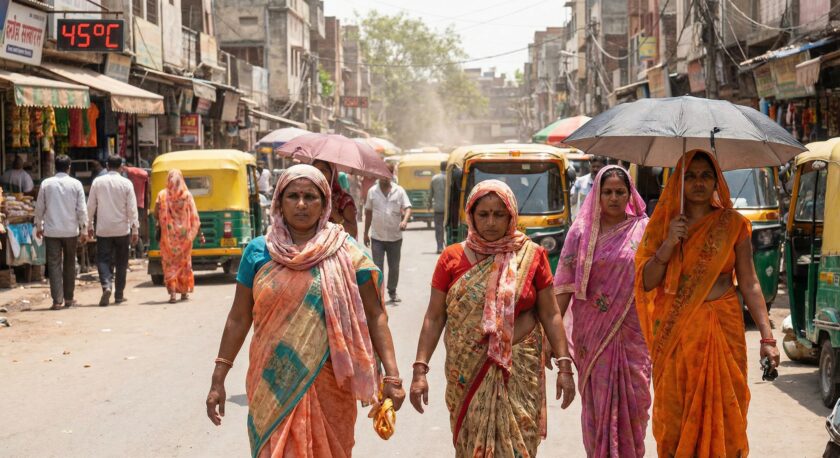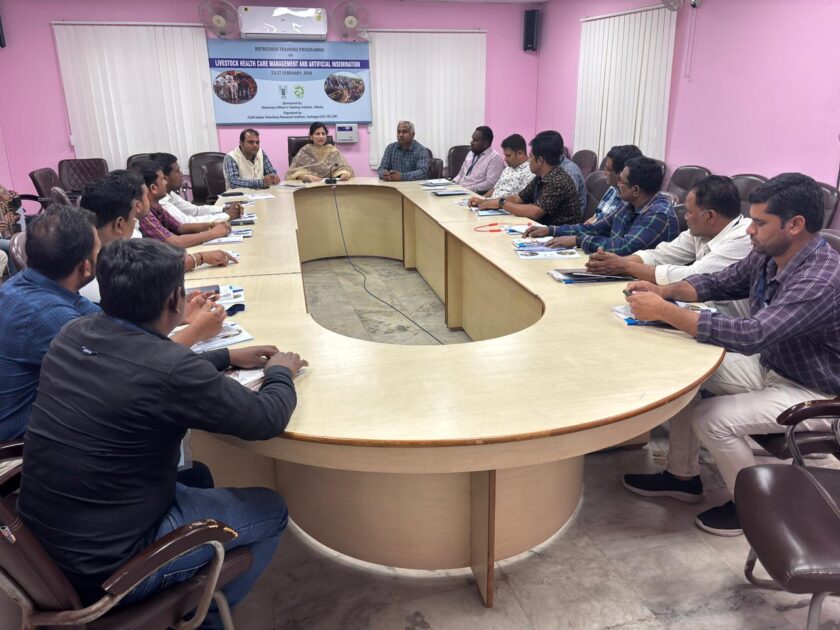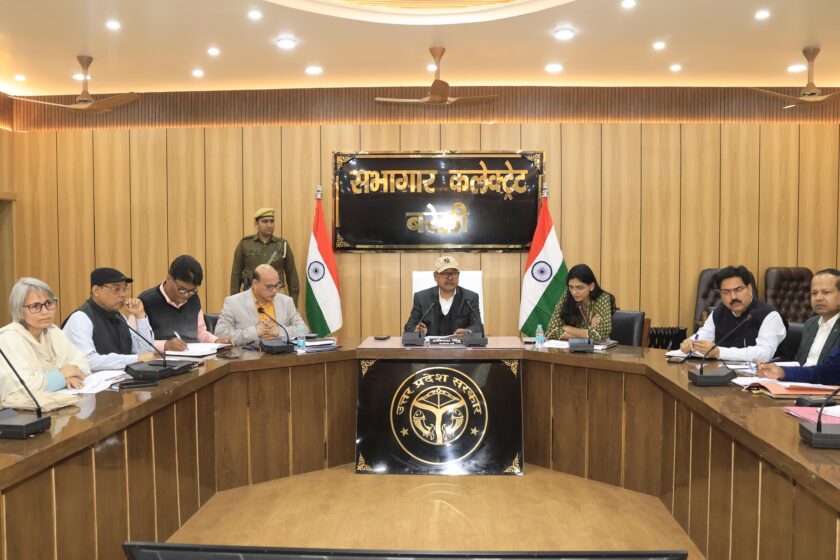Lucknow: The health sector in Uttar Pradesh has undergone a remarkable transformation over the past seven years, thanks to Chief Minister Yogi Adityanath’s relentless efforts. UP is now emerging as a hub of world-class medical facilities, offering high-quality treatment by specialist doctors.
This advancement significantly benefits the state’s residents, who no longer need to travel to Delhi, Mumbai, or the metros of South India for serious medical treatments. Access to top-notch care within their state saves patients and their families both time and resources.
More importantly, timely and appropriate treatment significantly improves their health outcomes and instills a sense of optimism. These enhanced health facilities are benefiting not only the people of Uttar Pradesh but also those from neighboring states, including a significant population from Nepal and Bihar.
Chief Minister Yogi Adityanath has long been committed to improving the health sector. As the head of Gorakshapeeth, he has focused on ensuring that people receive expert, high-quality treatment locally at reasonable costs. Now, as Chief Minister, he is expanding this mission across the state. His dedication to the “one district, one medical college” initiative stands as a testament to this commitment.
Yogi Adityanath’s focus on the health sector, including medical services and education, is noteworthy. From 1998 to 2017, he represented the Gorakhpur parliamentary seat. The Gorakhpur region, which extends to adjacent areas of Nepal and Bihar, is part of the Terai region, known for its high mosquito population and shallow, polluted water sources. This area, home to around 60 to 70 million people, is particularly vulnerable to mosquito and waterborne diseases such as encephalitis, kala-azar (black fever), dengue, chikungunya, and filariasis.
Each year, these diseases claim the lives of hundreds to thousands of people, especially children, with encephalitis and AES being particularly deadly. The number of those who die is surpassed by those who are left physically and mentally disabled, placing a lifelong burden on their families and society. This disability also negatively impacts the economy, as these individuals cannot contribute to the productivity of their families, communities, and the country.
Yogi Adityanath has witnessed these challenges firsthand. His relentless efforts, from grassroots activism to parliamentary advocacy, aimed to improve local health facilities, prevent untimely maternal deaths, and ensure fathers do not lose their support systems.
Even after becoming Chief Minister in 2017, his dedication to the health sector remained unwavering. Despite Uttar Pradesh being the most populous state with limited resources and a history of neglect in medical services and education by previous governments, Yogi took on the challenge with determination.
His commitment led to a near-eradication of encephalitis and a significant reduction in mortality rates due to Acute Encephalitis Syndrome (AES) and Japanese Encephalitis (JE) to zero by May 2024—a remarkable achievement. Other mosquito-borne diseases like kala-azar, chikungunya, and dengue were also brought under considerable control during this period.
Chief Minister Yogi Adityanath has consistently strived to ensure that the common man receives affordable, high-quality, and up-to-date medical care close to home. Prime Minister Narendra Modi inaugurated two world-class institutions: the All India Institute of Medical Sciences (AIIMS) in Gorakhpur, spanning 112 acres at a cost of Rs 1011 crore, and the Regional Medical Research Center (RMRC) located on the Baba Raghav Das Medical College campus.
Mahayogi Gorakhnath University, established by Gorakshapeeth, offers excellent medical and paramedical education. This year, the Institute of Medical Science within the university was recognized for MBBS studies. These institutions will be pivotal in treating seasonal, infectious, and severe diseases in the region, researching their causes, and implementing control measures.

Furthermore, Chief Minister Yogi’s ambitious vision aims to open one medical college in each district. Under this initiative, a staggering 65 medical colleges have been built, with 22 more under construction. Prime Minister Modi recently inaugurated nine new government medical colleges in UP simultaneously.
Starting in 2024, seven new medical colleges will commence studies in Bijnor, Bulandshahr, Kanpur Dehat, Kushinagar, Lalitpur, Pilibhit, and Sultanpur. The AIIMS facilities in Gorakhpur and Raebareli, serving as referral centers, are also notable contributions of the Yogi administration.
The state will soon welcome several new medical institutions. Atal Bihari Vajpayee Medical University in Lucknow and the first Mahayogi Guru Gorakhnath Ayush University in Gorakhpur are nearing completion. A Government Ayurvedic College is under construction in Ayodhya, and a Government Homeopathic College has been established in Varanasi.
Nursing staff are crucial in healthcare, often providing 24-hour patient supervision. To address this, along with increasing the number of doctors through the one district, one medical college initiative, the government is also focusing on expanding the nursing workforce. In this effort, 23 nursing colleges are being established, adding 7,000 nursing and 2,000 paramedical seats.
With the establishment of medical colleges in every district, UP is set to become a significant hub for medical equipment manufacturing. Major investors in this sector are showing interest in various districts. Chief Minister Yogi Adityanath has been proactive in making UP a center for medical equipment and drug production, improving medical services with substantial investments. His proposal for a medical device park in Noida has been approved by the central government, and work is underway on this project.
The government’s decisions to boost pharmaceutical manufacturing, including the introduction of a new pharmaceutical policy, are expected to have a significant impact on the state’s drug manufacturing. This initiative aims to attract companies manufacturing Active Pharmaceutical Ingredients (APIs) to UP, reducing dependence on China for raw materials and making the state self-sufficient in drug manufacturing. The first pharma park in the state will be established in Lalitpur.
The state’s efforts to enhance health services led to the establishment of over 550 oxygen plants within just eight months during the global COVID-19 pandemic. A comprehensive and far-reaching COVID-19 vaccination campaign was launched to protect people from infection, and the number of oxygen concentrators and beds was significantly increased.
NITI Aayog praised Chief Minister Yogi Adityanath’s initiatives. The then CEO of NITI Ayog, Amitabh Kant, acknowledged that Uttar Pradesh had made substantial improvements in its health system, ranking it among the top large states in the country.
The Chief Minister is committed to ensuring that no one is deprived of medical treatment due to financial constraints. To this end, 5.11 crore people have been covered with Ayushman Cards. Additionally, individuals suffering from serious illnesses receive substantial support from the Chief Minister’s discretionary fund, which has provided over Rs 3200 crore to date.









